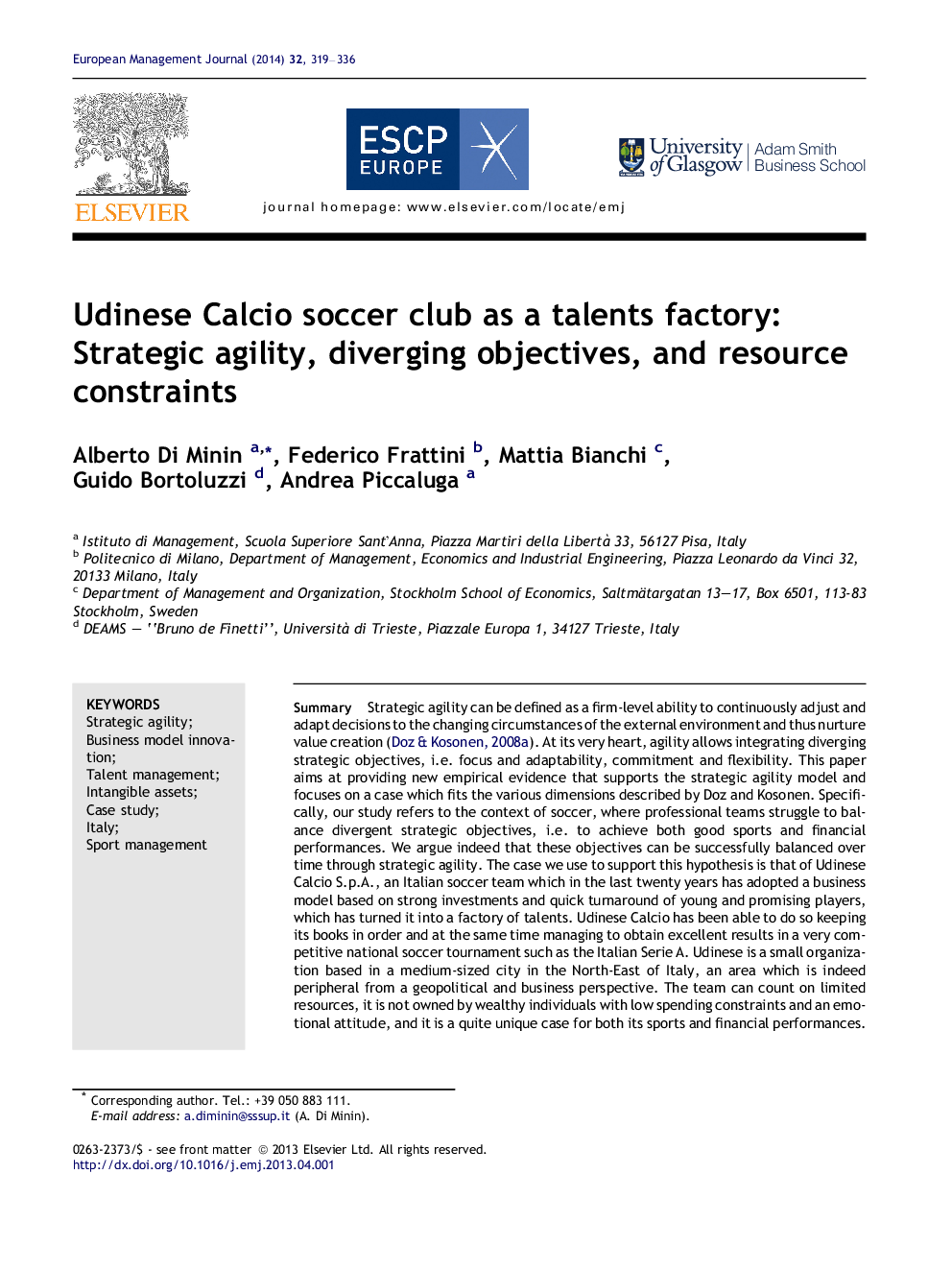| کد مقاله | کد نشریه | سال انتشار | مقاله انگلیسی | نسخه تمام متن |
|---|---|---|---|---|
| 1014913 | 939697 | 2014 | 18 صفحه PDF | دانلود رایگان |
• We discuss how strategic agility is key to success in highly competitive contexts.
• In sport business it is extremely difficult to achieve both good sports and financial performance.
• Udinese Calcio has effectively balanced its diverging objectives through strategic agility.
• We identify the managerial practices and business model for an agile organization.
• We discuss how strategic agility can be achieved under resource constraints.
SummaryStrategic agility can be defined as a firm-level ability to continuously adjust and adapt decisions to the changing circumstances of the external environment and thus nurture value creation (Doz & Kosonen, 2008a). At its very heart, agility allows integrating diverging strategic objectives, i.e. focus and adaptability, commitment and flexibility. This paper aims at providing new empirical evidence that supports the strategic agility model and focuses on a case which fits the various dimensions described by Doz and Kosonen. Specifically, our study refers to the context of soccer, where professional teams struggle to balance divergent strategic objectives, i.e. to achieve both good sports and financial performances. We argue indeed that these objectives can be successfully balanced over time through strategic agility. The case we use to support this hypothesis is that of Udinese Calcio S.p.A., an Italian soccer team which in the last twenty years has adopted a business model based on strong investments and quick turnaround of young and promising players, which has turned it into a factory of talents. Udinese Calcio has been able to do so keeping its books in order and at the same time managing to obtain excellent results in a very competitive national soccer tournament such as the Italian Serie A. Udinese is a small organization based in a medium-sized city in the North-East of Italy, an area which is indeed peripheral from a geopolitical and business perspective. The team can count on limited resources, it is not owned by wealthy individuals with low spending constraints and an emotional attitude, and it is a quite unique case for both its sports and financial performances. These results have been achieved, despite the unique business model which relies on young talents more than on well-known, experienced players, through excellent management practices that have made Udinese Calcio a strategically agile organization. We argue that the case of Udinese Calcio strengthens the validity of the strategic agility concept and can be extended to other situations where the need to strike a balance between divergent objectives with limited resources is quintessential. Examples are to be found outside soccer or sport clubs, in contexts such as health management, education, political lobbying.
Journal: European Management Journal - Volume 32, Issue 2, April 2014, Pages 319–336
